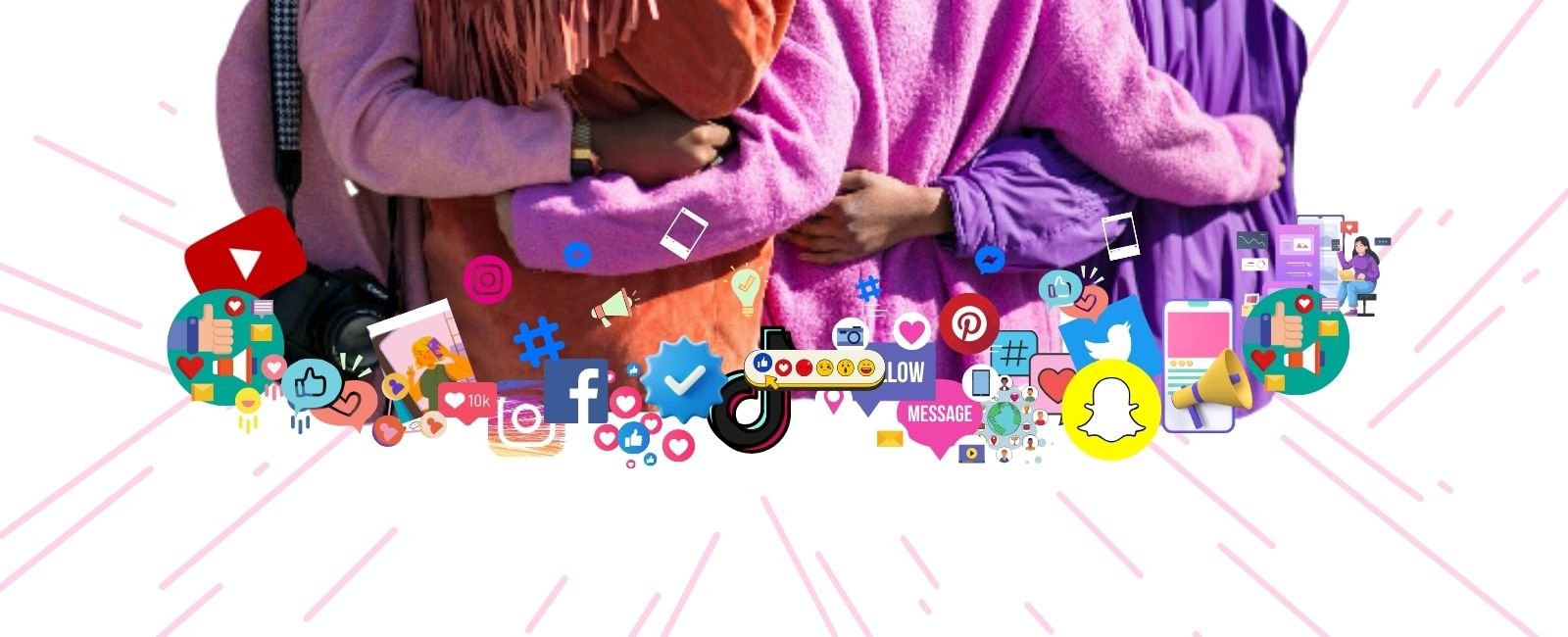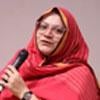How women-only online spaces drive Pakistan's daughters to thrive together
Online spaces for women are bringing many of them out of social isolation, and they can connect with others who can empathise with them and offer solutions

“We don’t know any women who work in tech other than Jehan Ara and you. And we know you because you teach us.”
This statement from one of the students in my class changed the trajectory of my career.
In 2016, I was teaching at a private university as a visiting faculty, and there were six girls in a class of over fifty students. They always sat in the same corner and never contributed anything to the discussion. At first, what looked like disinterest to me turned out to be hopelessness about their future, and they felt uncomfortable contributing to a class full of boys. I asked the girls to stay back after one of the classes, and that conversation gave me perspective and a mission.
Later that evening, I started WomenInTechPK, Pakistan’s largest women-only tech community. It began as something I wanted to do for my students, turned into a national movement, and later became intertwined with my professional identity.
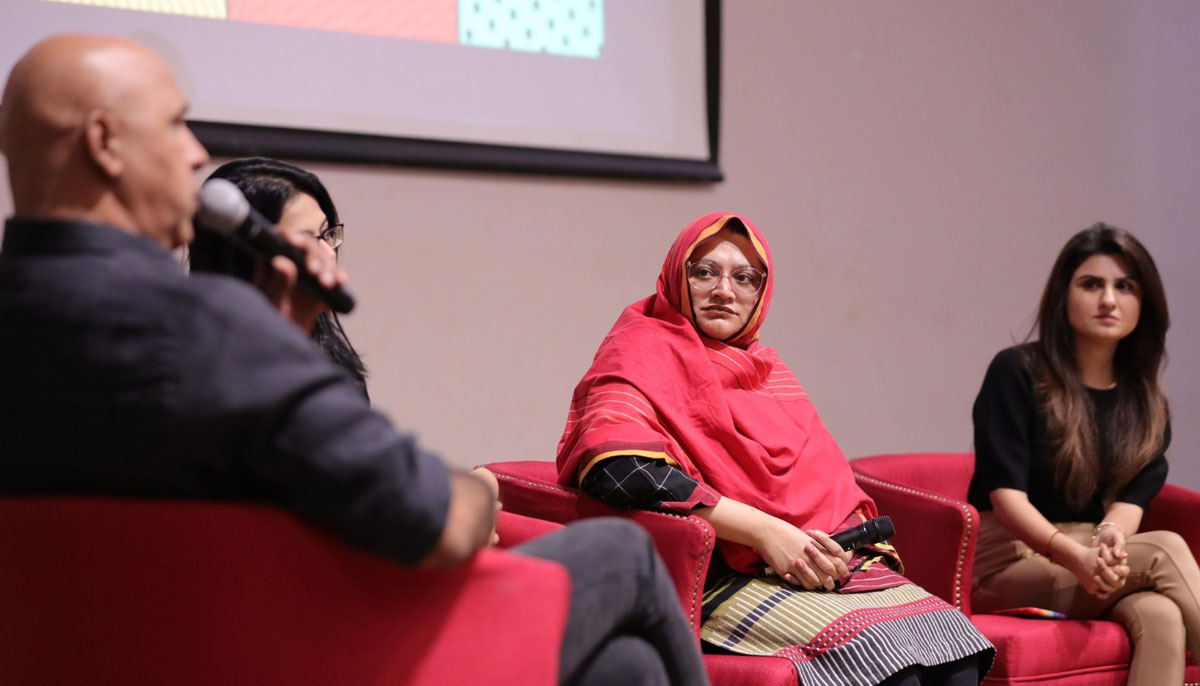
Women-only spaces are not new, especially in Pakistan, as we are still a largely conservative society, but it is a different story when it comes to online spaces. In a lot of online discourse, you will find people (read: men) complaining about being excluded.
They feel it is sexist and discriminatory, and I have been labelled a misandrist repeatedly, alongside many other founders and admins of women-only communities, especially on Facebook.
This exclusion has a nuance, and I want to talk about it. When I started the community and decided to keep it women-only, the only reason was to ensure a safe space for the women where they could contribute without any unwanted attention or potential bullying and harassment.
Whenever someone asked me about this gender restriction policy, that’s what I said, but then, I came across a book called “The Art of Gathering by Priya Parker.” The book is not about communities or online spaces but about event planning and hosting, but the insights shared in her book can also be applied to online spaces.
Priya, in her book, says: "thoughtful exclusion is necessary for any gathering or purpose because over-inclusion points to a lack of commitment to the purpose. Good exclusion activates diversity, so a women’s circle ‘only for women’, where they are safe to express parts of themselves they otherwise hide, is activating diversity".
Her insights made me realise why purpose-driven communities with meaningful and thoughtful rules and gatekeeping thrive and bring excellent outcomes. For the same reason, we have seen communities like Soul Sisters Pakistan, Femprow, Ask the Village, and Connected Women Pakistan doing fantastic work to connect, skill up, and empower women.
Celebrating womanhood
Tanya Imran, the founder of the Ask the Village community on Facebook with nearly 65 thousand women-only members, also acknowledged the need for women-only safe spaces.
“As a community leader and group administrator at Ask the Village, the surprising thing about a female-only community has been how it has aided women with personal and professional growth by appreciating and acknowledging the unique set of circumstances and anchors that hold women back,” she said.
Tanya insisted that women need safe spaces where they can be seen, and heard and have their feelings validated. “Ask the village prices a platform where we celebrate womanhood, with its challenges and struggles.”
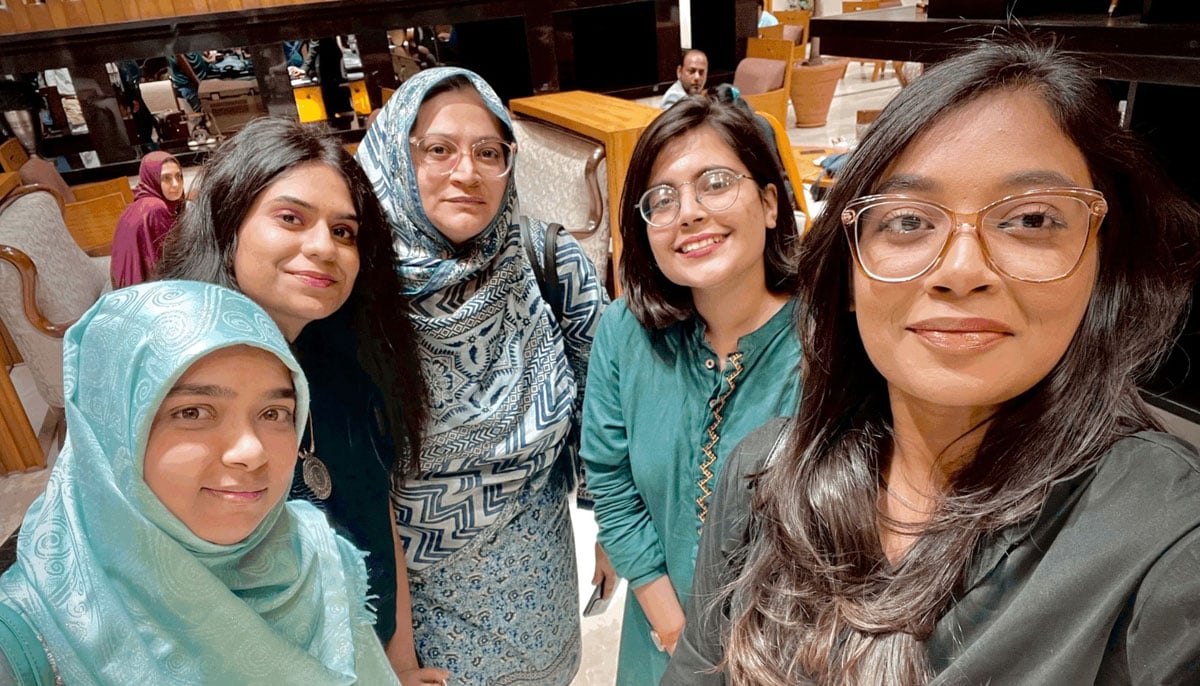
We need these spaces not only for women’s safety and to foster connections but also to give them a space to open up about experiences that they usually wouldn’t share publicly due to the fear of backlash or victim blaming. These include a range of issues, such as workplace harassment, cyberbullying, discrimination, and even unsafe office environments.
Within these spaces, we witness an outpouring of shared stories, mutual support, and constructive solutions from members. Most of these communities also provide skill development opportunities for their members so that they can comfortably seek guidance and learn in an environment that isn’t hostile. In our case, we partner with various local and international organisations to bring learning and work opportunities for our members.
Fostering women-only professional development spaces
Samana Hassan heads Programmes at ConsultNet Corporation, including CodeGirls, Pakistan’s most well-known community-funded coding boot camp for girls and women. She, too, believed in fostering women-only professional development spaces.
“In a society like ours, where women often face biases and the education system doesn’t fulfil the training and development needs for the professional world, it is all the more necessary to foster women-only professional development spaces,” Samana said, highlighting how female participants often shy away from addressing their questions.
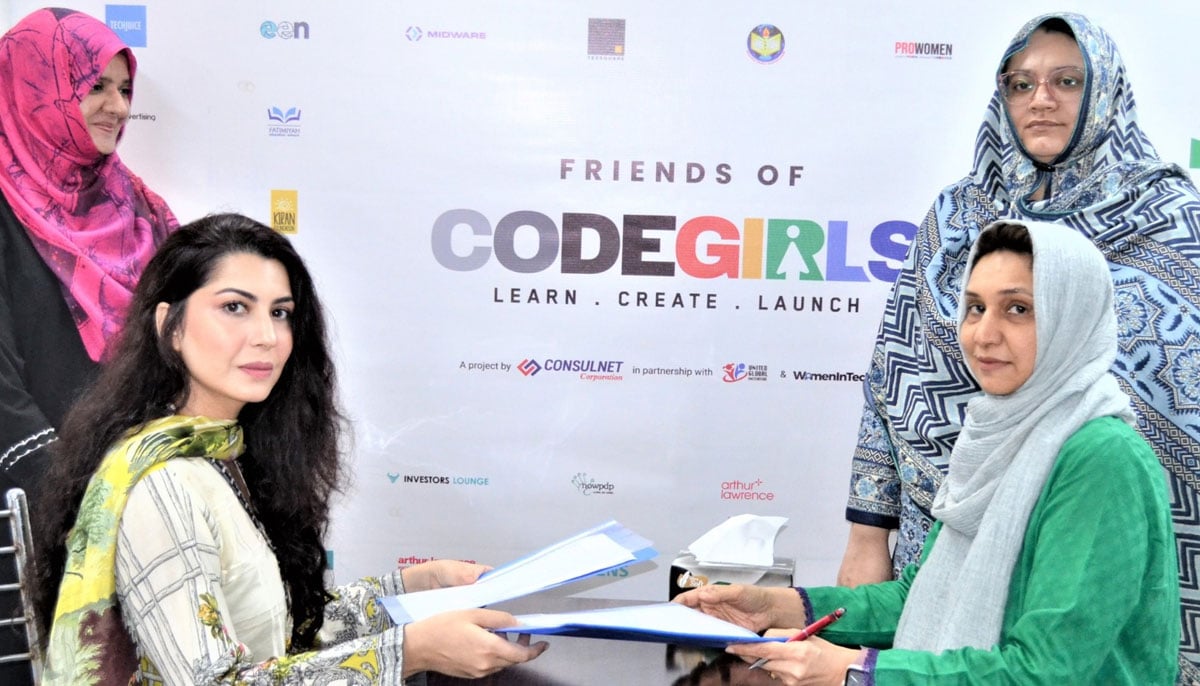
Segregated professional development spaces, she added, allow women to embrace what they are passionate about and enable them to voice their dreams, address their fears, and harness their unique abilities.
“This can be monumental in unravelling growth and innovation for the industry itself,” Samana told me.
Even I believe that the journey hasn't been entirely smooth. We have faced challenges such as dealing with threats and derogatory language from individuals who were banned for rule violations. I've also encountered situations where company owners threatened legal action against me because community members shared their negative experiences with their organisations.
Managing WomenInTechPK
There have been instances of men attempting to catfish moderators to gain entry into the community, and even conversations from within the community found their way to tabloids and incel groups.
On top of all this, I've personally experienced online hostility from people blaming me for getting women hired as tokens. Despite it all, our work building this community holds immeasurable value, justifying every ounce of effort we've invested.
“Over the past five years, I have been actively moderating and managing the women-only community 'WomenInTechPK,' which has had a significant impact on my career,” said Yumna Asim, a techno-functional consultant at EPM Partners and one of WomenInTechPK’s moderators.
Yumna highlighted that the community has facilitated connections with women in her technology field, allowing them to share opportunities and support one another's professional growth.
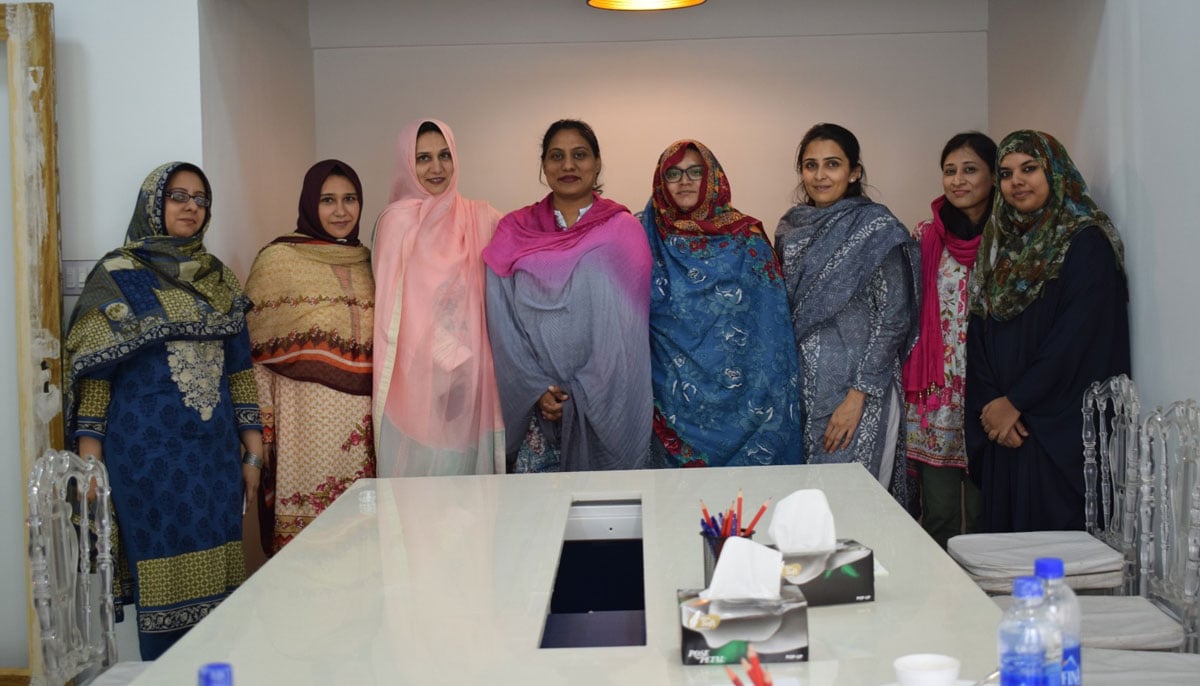
“It has also granted me recognition within a valuable professional network of women, enhancing my visibility. Additionally, being part of this community has allowed me to offer guidance and assistance to others,” she added.
The tech professional underscored that women-only communities address the challenges women often face, such as limited networks and social interactions, thus contributing significantly to their personal and professional growth.
Running a community with over 10,000 members can be exhausting, but running a niche-specific and comparatively civil space like WomenInTechPK is easier than the other massive online communities. Since its inception, WomenInTechPK has received ample support from local and international organisations. We found collaborators and partners and were able to challenge stereotypes and change the narrative for women working in Pakistan’s tech ecosystem.
Programmes like CodeGirls, platforms like ProWomen.pk, Pakistan Software House Association’s Diversity Committee, and the framework are a few of our contributions. We have partnered with over 100 conferences, events, and meetups to ensure that women are both in the audience and on the stage. Since 2019, we have published nearly 100 interviews of our members, building their digital footprint and helping them connect with a broader audience and opportunities.
Seat at the table
"Having a seat at the table is very different from having a voice or having your voice heard,” Arooma Naqvi, the programme manager for CaterpillHERs — an entrepreneurship and career accelerator for women by women — said.
In a workforce primarily run by men, she added, women-only spaces initiate important, intimate conversations that otherwise rarely occur.
“There’s a level of respect and familiarity because the women around you understand the complexities of your challenges. You can speak, share, and learn significantly more when you are not fighting to be heard at the table,” Arooma asserted, pointing at studies revealing how women speak significantly less when outnumbered by men in group discussions, women-only spaces must be prioritised for women’s professional development.
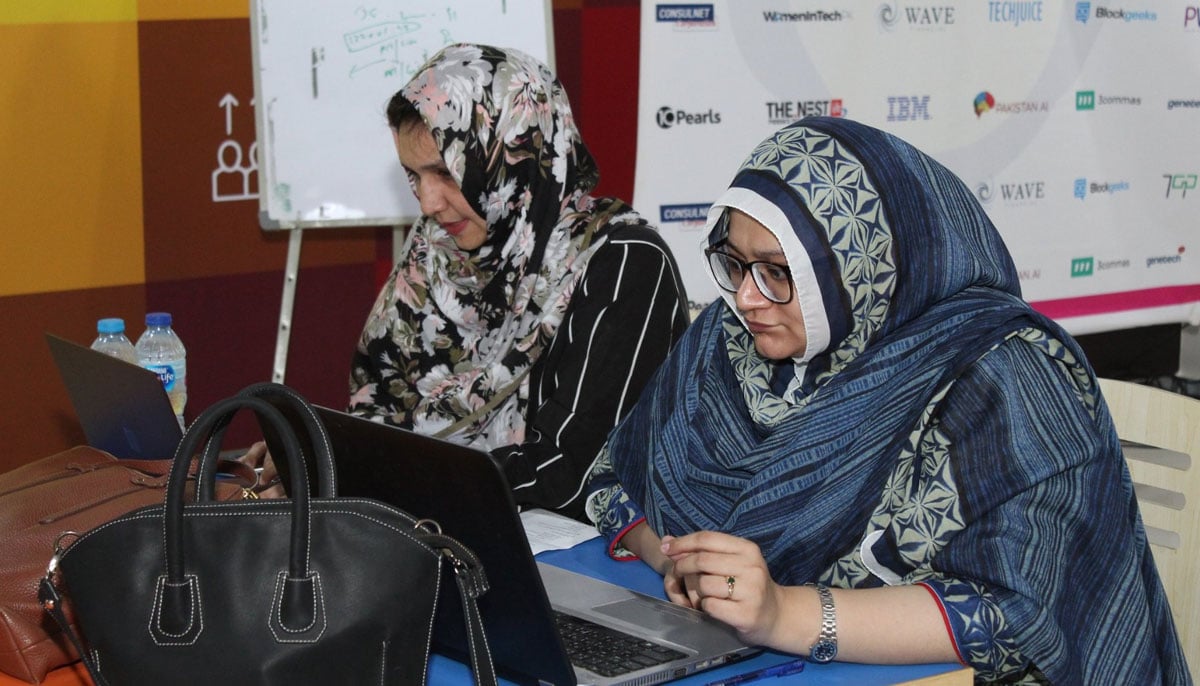
Online spaces for women are bringing many women out of social isolation, and they can connect with other women who not only can empathise with them but also offer them solutions or even share their own experiences to help them feel connected and heard.
These communities also play a massive part in changing the way we think about women in online spaces, at home, and in the workplace. We want women to thrive by engaging in meaningful conversations and expressing themselves authentically without the barriers and biases they usually encounter in online spaces that are not curated for them.
Faiza Yousuf is a software engineer with over 13 years of experience building tech products and teams. She spearheads initiatives including WomenInTechPK, CodeGirls, and CaterpillHERs to enhance women's inclusion in tech and the economy. She posts @FaizaYousuf
Header and thumbnail illustration by Geo.tv



